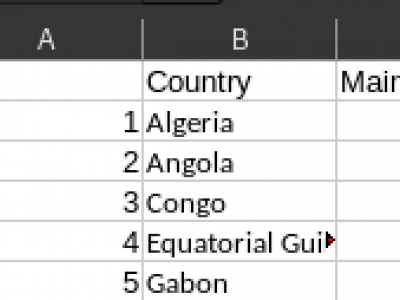*.csv

This data repository comprises three distinct datasets tailored for different predictive modeling tasks. The first dataset is a synthetic dataset designed to simulate multivariate time series patterns, incorporating both linear and non-linear dependencies among input and target features. The second dataset, the Beijing Air Quality PM2.5 dataset, consists of PM2.5 measurements alongside meteorological data like temperature, humidity, and wind speed, with the objective of predicting PM2.5 concentrations.
- Categories:
 409 Views
409 Views
We utilized Digital Ocean's cloud service, setting up three Linux virtual machines, each with 1vCPU, 1GB of memory, and a 10GB disk. The architecture included an API gateway for routing requests to a stateless application service backed by a database for storing application data. The application operates the service under a fluctuating workload generated by a load-testing script to simulate real-world usage scenarios. The target source or the application service is integrated with Prometheus, a monitoring tool for gathering system metrics.
- Categories:
 565 Views
565 Views
This dataset presents a comprehensive collection of measurements from a Thermoelectric Generator (TEG) energy harvesting prototype, equipped with nine PT100 temperature sensors and detailed recordings of voltage and current outputs. Collected over a 24-month period starting in October 2022, the data provide insights into the performance of the TEG under varying environmental conditions.
- Categories:
 463 Views
463 ViewsThe effect of phase changes along the antenna radiation pattern beamwidth and bandwidth on synthetic aperture radar (SAR) imaging is evaluated by means of electromagnetic simulations. Electromagnetic images have been obtained in order to characterize the effect of the non-uniform phase of the antenna radiation pattern on this type of measurements. Three different situations have been analyzed: i) phase variations across the angular range, ii) nonlinear phase shift across the working frequency band and iii) antenna phase center shift across the bandwidth.
- Categories:
 538 Views
538 Views
This dataset contains inertial measurements data (accelerometer, gyroscope and magnetometer), recorded as a part of DoorINet research. Our dataset was recorded using two types of IMUs: Memsense MS-IMU3025 [32] and Movella Xsens DOT [33]. The Memsense MS-IMU3025 was used to generate the ground-truth (GT) readings. This IMU has a gyroscope bias instability of 0.8°/h over the axis of interest Z and was recorded at 250Hz. The Movella Xsens DOT IMUs were used as units under test. It has a gyroscope bias instability of 10°/h over the axis of interest Z and was recorded at 120Hz.
- Categories:
 10 Views
10 ViewsTo achieve improved multi-node temperature estimation with limited training data in Permanent Magnet Synchronous Motors (PMSMs), a novel approach of a Lumped-Parameter Thermal Network (LPTN)-informed neural network is proposed in this paper. Firstly, the parameter and model uncertainties of third or higher-order LPTNs with global parameter identification for temperature estimation are systematically stated based on numerical analysis.
- Categories:
 444 Views
444 Views
LinguoInsight English Textbook Corpus
- Categories:
 162 Views
162 ViewsQuantification and analysis of global oil trade networks reveals deep insights into a nation's development and influence at a global scale. Further, it allows us to predict future trends and changes to adapt state policy as the crude oil market influences the balance of power among the developed and emerging economies alike as it is central for energy needs as well for industrial progress.
- Categories:
 421 Views
421 Views
This research utilized data from the Oxford University Our World in Data Covid 19 Dataset. This dataset contains data points collected on an ongoing basis from Johns Hopkins University, Center for Systems Science and Engineering COVID-19 data, European Centre for Disease Control, and OXFORD COVID-19 Government Response Tracker, from January 2020 to the present.
- Categories:
 310 Views
310 Views
Faces and bodies provide critical cues for social interaction and communication. Their structural encoding depends on configural processing, as suggested by the detrimental effect of stimulus inversion for both faces (i.e., face inversion effect - FIE) and bodies (body inversion effect - BIE). An occipito-temporal negative event-related potential (ERP) component peaking around 170 ms after stimulus onset (N170) is consistently elicited by human faces and bodies and it is affected by the inversion of these stimuli.
- Categories:
 319 Views
319 Views

